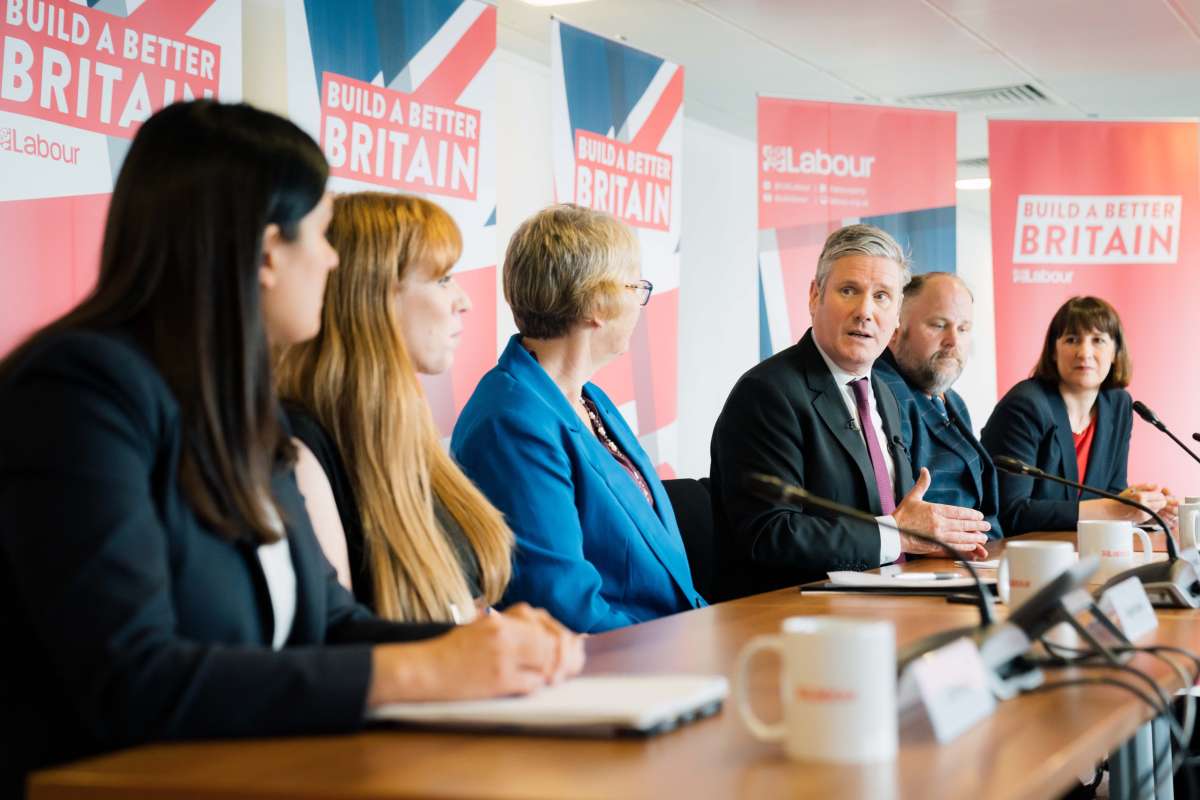After Labour gained hundreds of councillors in last week’s local elections, Sir Keir declared his party was on course to win the next general election…reports Asian Lite News
Keir Starmer has repeatedly refused to rule out a deal with the Liberal Democrats if Labour fails to win a majority at the next election.
The Labour leader insisted that his party’s aim was an outright victory. But he avoided the question of a potential agreement with the Lib Dems at least seven times, even as he said he would not team up with the SNP.
In a series of interviews he also said he was “very relaxed” about the rich and indicated he would not tear up controversial new police powers which have hit the headlines after the arrests of protesters at the King’s coronation.
After Labour gained hundreds of councillors in last week’s local elections, Sir Keir declared his party was on course to win the next general election.
But pollsters have suggested it could fall short of that aim and that Britain could once again be heading for a hung parliament.
Sir Keir insisted he was “going for an outright majority”, but asked about a deal with Sir Ed Davey’s party, told Sky News: “I’m not answering hypotheticals, but we’re aiming for a Labour majority and that’s what we’re confident about.”
However, when asked about the Scottish National Party, he said he was “absolutely clear there are no terms in which we will do a deal with the SNP”.
Sir Keir insisted the difference was that the SNP wanted to break up the United Kingdom.
The spectre of a Labour-led coalition government has hurt the party’s election chances in the past. A Conservative attack ad depicting the party in the pocket of the SNP has been credited with helping David Cameron to secure a Conservative majority in 2015.
As he seeks to encourage more voters to back Labour, Sir Keir also said he was ”very relaxed” about people being rich and getting rich.
In February Rishi Sunak appeared lost for words when asked if he was “stinking rich” in a television interview. Eventually he described his situation as “financially fortunate”.
But asked about an infamous New Labour quote about being “intensely relaxed” about the filthy rich, the Labour leader replied: “I’m very relaxed about people being rich and getting rich. I know what aspiration is, I mean, I came from a working class background and I was able to not only head up the Crown Prosecution Service, but now lead the Labour Party.
“So my story is one of aspiration and opportunity. I understand that in other people. But I want obviously everybody to pay their taxes and I want fairness and I want equality and I want every child to have that opportunity.”
Meanwhile, former Labour prime minister Sir Tony Blair warned Sir Keir against complacency.
He told Bloomberg TV Sir Keir has “done a pretty good job pulling the Labour party back from where it was”. “But of course you can’t be complacent about these things at all,” he added.
On the arrests, Sir Keir said Scotland Yard had got some of its “judgments wrong”.
But he said it was “early days” for the Public Order Act, under which the group was detained for 16 hours before being released and told no charges would be brought. Rather than committing to repeal the legislation, he suggested fresh guidance could make improvements amid concerns it was being used to clamp down on dissent.
A Conservative Party spokesman said Sir Keir would “say and do anything to get into Number 10.”
On Sunday, Lib Dem leader Sir Ed Davey – whose party gained 12 councils and more than 400 councillors on Thursday – ruled out going into a coalition with the Conservatives but refused to say the same for Labour.
He said it was a “hypothetical question” adding that he would not “take the voters for granted”.
On Tuesday, he added that the party’s strategy was to target Conservatives in so-called “blue wall” areas of southern England and there must be “no sitting back”.
It all adds up to what looks like symmetrical flirting from Labour and the Liberal Democrats.
They each answer the question in exactly the same way, despite being able to be categoric about equally hypothetical situations of deals with the Conservatives and the SNP respectively.
In both local elections and at a general election, in most instances Labour and the Lib Dems are competitive against the Conservatives in different parts of the country.
Expect to see Tory MPs and ministers talk up what they see as the dangers of a hung parliament, with Labour reliant on other parties for support.
In 2010, the Lib Dems formed a coalition government with the Tories but the party paid the price at the next general election, losing 49 seats.
The Conservative-Lib Dem coalition lasted a full term and was arguably more stable than the Conservative-only governments that followed it.

Leave a Reply